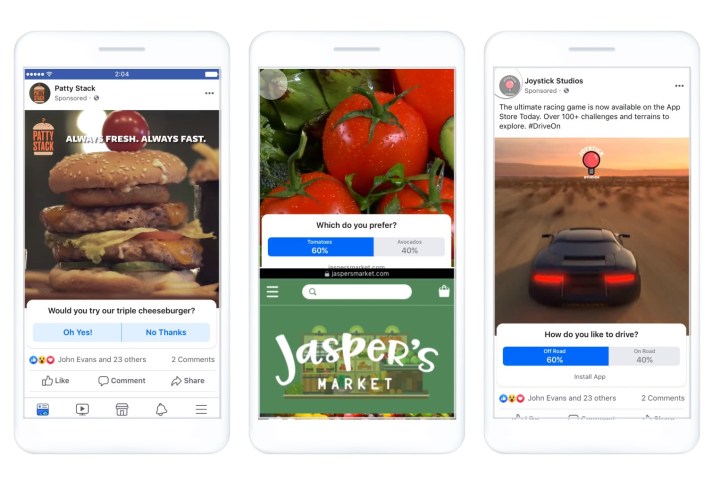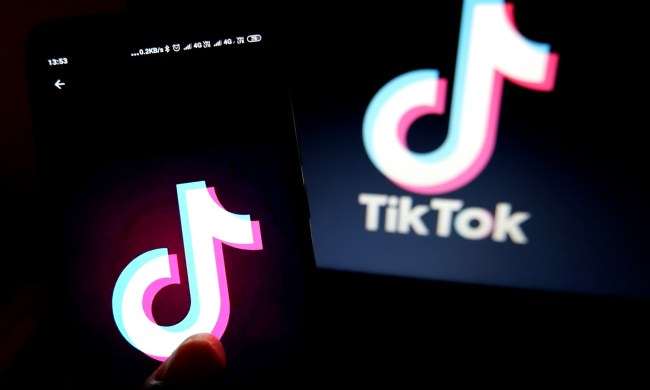
Facebook is rolling out new interactive ads to its News Feed that include augmented reality experiences that let you play games or see how makeup looks on your skin.
The social media giant announced in a post on Thursday that the ads would let users “try on” makeup products and shades, and would also include polls and games. The “AR ads” will launch to advertisers in beta starting this fall, so expect to see them in your feed soon.
The interactive features, such as the “try on” feature, will only be available to users who use the mobile app by using their phone’s camera. YouTube already adopted a similar feature in June that use augmented reality to allow users to “sample” makeup while watching popular beauty tutorials.
Another new feature Facebook is beta testing will allow users to play a demo of a mobile game before downloading. Skateboarding shoe brand Vans has already used the new feature for a holiday game it advertised on Facebook.
The social media platform is also introducing video poll ads. Consumers will be able to pick one of two options within a given video. The feature is playing off of Instagram’s popular poll feature for Stories ads that rolled out earlier this year.
Facebook said they these kinds of ads have a better chance of attracting your attention as you scroll through your feed — they boost engagement, since people like weighing in or seeing the poll’s results.
“For example, in 5 out of 9 brand lift studies, we observed poll ads increased brand awareness compared to video ads,” Facebook said in a post announcing the new ad types.
In June, Instagram announced branded content ads that allow influencers that work with brands to reach a broader audience beyond their followers. While this new ad type looks like a normal, sponsored post, having someone you don’t follow pop up on your feed advertising a product turned off some users.
Digital Trends reached out to Facebook for more information on the new ads — and whether you’ll be able to turn them off — and we’ll update this story if we hear back from them.



